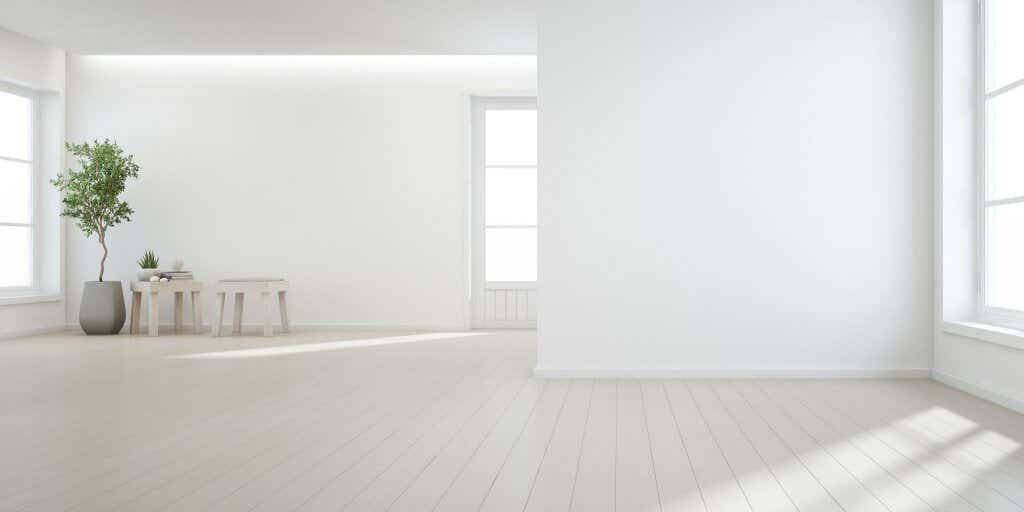Unoccupied property and empty building insurance

 Unoccupied property and empty building insurance
Unoccupied property and empty building insuranceWhat property is unoccupied house insurance for?
Unoccupied property insurance is designed for buildings left empty for extended periods, typically more than 30 or 60 days. Standard home insurance won’t usually cover you beyond that.
It’s useful if your property is:
- Waiting to be sold or let
- Undergoing renovations
- A second home or holiday home not used often
- In probate after a bereavement
- Empty due to hospital stays or time abroad
If no one’s living there full-time, it's likely it will count as unoccupied.
Do I need contents or buildings insurance if my property is empty?
That depends on what’s in it and what could go wrong.
- Buildings insurance protects the structure - walls, roof, pipes, etc.
- Contents insurance covers what’s inside, such as appliances, furniture, or anything left behind.
Why does being unoccupied affect my home insurance?
Because the risks go up. Empty homes are more vulnerable to things like:
- Break-ins or vandalism
- Undetected leaks or damage
- Fires or structural issues that no one’s around to spot
Insurers know this, so if your home’s unoccupied longer than your current policy allows and you haven’t told them, they could refuse to pay out if something goes wrong.
Could you get a better deal on your building insurance?
Our home insurance comparison service is free and simple – and could save you money when you compare and switch.
What’s covered by unoccupied home insurance?
Cover can vary by provider, but you’ll typically find options for:
- Structural damage – from fires, floods, storms, or subsidence
- Theft or vandalism – if contents are left inside
- Water damage – especially from frozen or burst pipes
- Liability cover – if someone’s injured on your property
- Legal costs – like evicting squatters or dealing with disputes
Some policies may ask for extra security measures, like regular inspections, alarms, or drain-downs in winter. Check the terms carefully before buying.

How much cover do I need?
There’s no one-size-fits-all here, it depends on your property and plans.
- Buildings cover should reflect the full rebuild cost, not just market value
- Contents cover should match what’s actually inside
- Optional extras like legal or liability protection can be worth it, especially for landlords or high-risk areas
If the property’s unoccupied for just a short time, say 3 months, you might not need as much as someone leaving a place empty long-term.
How does unoccupied home insurance differ from regular home insurance?
Here's an overview of the key differences:
| Regular home insurance | Unoccupied home insurance | |
|---|---|---|
| Max unoccupied days | 30-60 | Up to 12 months or longer |
| Risk assumed | Low | Higher (theft, damage, neglect) |
| Policy requirements | Fewer conditions | May require checks/security |
| Price | Lower | Usually higher due to risk |
You’re paying for the peace of mind that your property’s protected even when no one’s home.
Do I need unoccupied home insurance as a landlord?
Yes, if your rental property is sitting empty between tenants, your standard landlord insurance may not cover you past a certain period, often 30–45 days.
Unoccupied landlord insurance keeps the property protected until it’s let again. That includes cover for buildings, any remaining contents, and liability.
What if my home is unoccupied short-term?
There are flexible policies for that too. Many insurers offer short-term unoccupied home insurance, covering you for as little as 3 months. Perfect if you’re travelling, waiting for a sale to complete, or doing short renovations.
You won’t need to commit to a full year’s policy if you don’t have to.
Other insurance options
Depending on your situation, you might also want to explore:
- Landlord insurance – for rental properties
- Holiday home insurance – if your second home is left empty part-time
- Home insurance for probate – if you're dealing with an inherited property
Frequently asked questions
Do I need to tell my insurer if my home is unoccupied?
Yes, you do. Most standard home insurance policies only allow properties to be empty for up to 30 or 60 days. After that, you’ll need to tell your insurer and arrange appropriate cover.
What’s the maximum amount of time my home can be unoccupied before having to tell my insurer?
It varies by policy. But typically, if your home is unoccupied for more than 30 days, you need to notify your insurer. Some policies extend this to 60 days, but always check the small print.
Can I get 3-month unoccupied home insurance?
Yes, many insurers offer short-term policies starting from 3 months. This can be a cost-effective solution if your home is only temporarily empty.
Is unoccupied home insurance expensive?
It’s usually more expensive than standard cover, as the risks are higher. But the cost will depend on things like location, security, how long it’s empty, and whether contents are included.